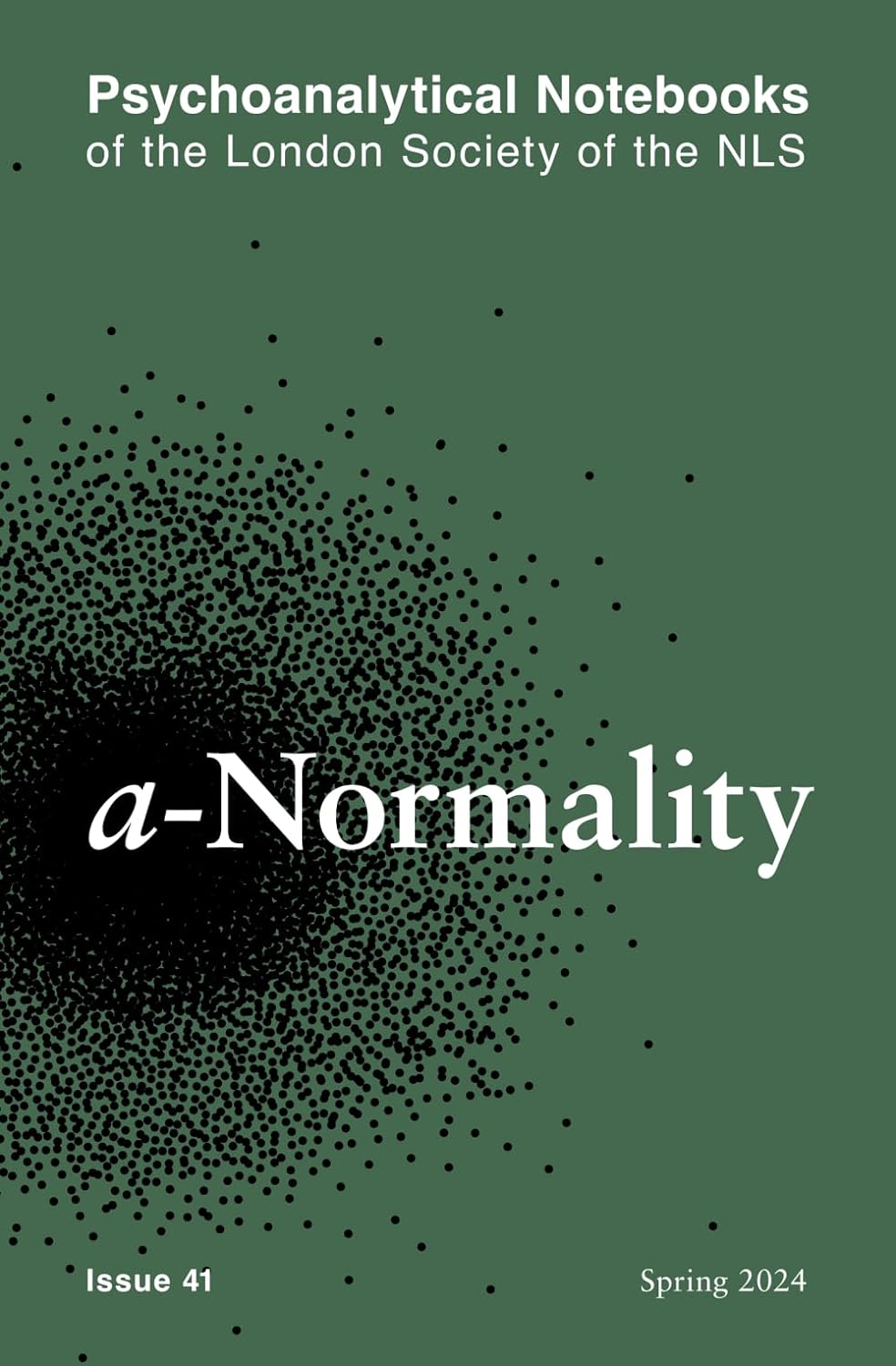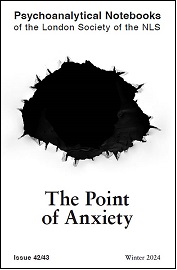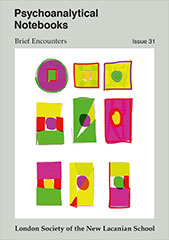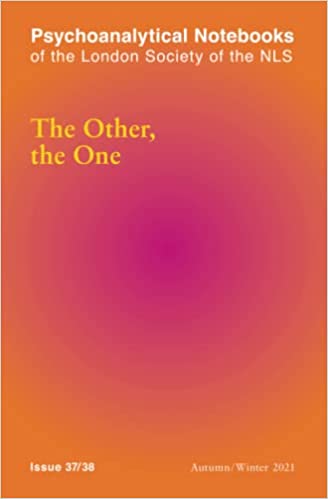Psychoanalytical Notebooks No. 41: a-Normality

Book Details
- Publisher : London Society of the New Lacanian School (NLS)
- Published : March 2024
- Cover : Paperback
- Pages : 194
- Category :
Lacanian Psychoanalysis - Catalogue No : 97853
- ISBN 13 : 9781916157682
- ISBN 10 : 1916157688
There are currently no reviews
Be the first to review
There is an obvious commotion in the field of normality today. For example, the widespread rejection of norms imposed by the Other is reflected in the language of the young, especially on social media: people with boring, mainstream tastes are deemed to be “normies”, descendants, perhaps, of the uncool “squares” of the American 1950s. These “normies” are pejoratively described as “basic”, meaning derivative, trite, unoriginal. This suggests the contrary expectation: paradoxically, that everyone should aim to be exceptional, and are entitled to be recognised as such. The rejection of the Other’s norms can also take the form of attacks on those who previously categorised and policed the abnormal, whether psychiatrists, lawmakers, scientists, or politicians. “Experts” of all kinds now find themselves prefaced with the disparaging qualifier “so-called”, the knowledge they possess being experienced as an encroachment on personal liberties (as the Covid pandemic made clear). Hence the related heightening of sensitivities to traces of misogyny, racism, homophobia, and transphobia in language that could be seen as anything other than maximally inclusive of the full rainbow of diversity, or as anything less than affirmative of the universal right to jouissance promised by the market.
What can psychoanalysis say about this? We should try to register these phenomena without judgement, simply as facts of our contemporary moment, notwithstanding how dizzying they evidently are for some. Nevertheless, it is important to think through the consequences, for subjectivity and thus for the practice of psychoanalysis, of this observable tumult in the field of normality. It is also important this is done without implying any nostalgia for the “good old days” of patriarchy! That would be ironic indeed, given the key role psychoanalysis has played in the subversion of norms ever since its scandalous Freudian inception. In any case, psychoanalysts cannot afford to be aloof from these shifts. In Seminar XIX Lacan argues that “had the notion of normal not taken on such an extension following certain vagaries of history, analysis would never have seen the light of day”. This is a strong thesis suggesting a moebian entanglement between the ethics of psychoanalysis and the problem of normality, conditioning not only its historical emergence but perhaps also the reasons analysands might address their suffering to an analyst today.
To counter that misconception, we have chosen to entitle this issue of the Psychoanalytical Notebooks using the signifier “a-normality”. What is this strange orthography, with its hyphens and italicisations, trying to get at? Firstly, the “a-normal” is precisely not the abnormal. The abnormal remains caught within the infernal loop of the normal and the pathological. But nor is “a-normality” naively anti-normative, i.e., against any and all norms. The anarcho-libertarian dream of a world completely without norms misrecognises that the fundamental problem faced by the parlêtre is not the oppressive Other prohibiting jouissance by pathologising it, but rather that of jouissance itself. Neither abnormal nor anti-normative then, the “a-normal” is that singular “object a-nomalous” that an analysis brought to its conclusion can produce by separating the One from the Other. The “a-normal” is thus the “aberration”, as Lacan puts it, involved in wanting to take up the position of a psychoanalyst, which is after all a very strange kind of desire: in this sense, the “a-normal” is what we hope to hear an echo of in testimonies of the Pass.
Table of Contents
Editorial - Colin Wright
PERFECTLY NORMAL
- Aurélie Pfauwadel & Colin Wright – Interview: Breathing Life into the New Normal
- Aurélie Pfauwadel – Psychoanalysis on the Other Side of Norms
AB/NORMAL
- Éric Laurent – Laughing at Norms
- Véronique Voruz – Normal Civilisational Psychosis
- Anne Béraud Bogino – Ruptures in Self-Evidence
- Ligia Gorini – Depathologisation: Some Remarks
- Vincent Dachy – The Future is Normal …
- Alasdair Duncan – In the Era of a-Normality
IN TRANSIT
- Jérôme Lecaux – Trans: The Children of Psychoanalysis
- François Ansermet –Disruptions in Gender: Clinical Practice and Contemporary Changes
- Alexandre Stevens – A Politics of the Singular
- Peggy Papada – LGBQT+: From Community to the Singular
NON-STANDARD TIME
- Dalila Arpin – The Lacanian Session: An Endless Session
- Sophia Berouka – Why Now?
- Colin Wright – How Can We Say a Cartel Has Begun?
- Renata Teixeira – Five Minus One
- Sioned Huws – Flash ~ The Instant of Seeing
- Virginia Carvalho – Myriad Ways to End, Multiple Ways to Enter
- Frank Rollier – Concluding Reflections
About the Author(s)
Colin Wright is an Associate Professor of Critical Theory at the University of Nottingham, UK, where he is Head of the Department of Cultural, Media & Visual Studies. He has a psychoanalytic practice in Nottingham and is a member of the London Society of the New Lacanian School. As well as being the current editor-in-chief of the Psychoanalytical Notebooks, he is the author/editor of books such as Returning to Lacan's Seminar XVII (2022), Perversion Now! (2017) and Badiou in Jamaica: The Politics of Conflict (2013). His forthcoming book is entitled Toxic Positivity: A Lacanian Critique of Happiness and Wellbeing.
Customer Reviews
Our customers have not yet reviewed this title. Be the first add your own review for this title.
You may also like
Reading Lacan's Ecrits: From 'Overture to this Collection' to 'Presentation on...
Calum Neill
Price £28.79
save £3.20









